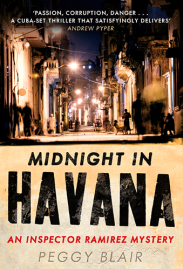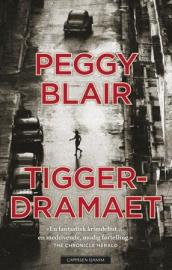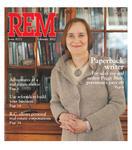Late last week, celebrity author Joseph Boyden’s indigenous background was questioned by both Jorge Barrera of the the Aboriginal Peoples Television Network (APTN) and by an indigenous blogger, Robert Jago. The questions they raised created a firestorm of controversy on Twitter. The story hit the mainstream media yesterday, with stories on CTV, the Globe and Mail, and the National Observer, among others.
Boyden has become perhaps the leading Native spokesperson on indigenous issues in Canada. He has been interviewed hundreds of times, and has offered his views, among other things, on reconciliation, on murdered and missing Aboriginal women and girls, and on residential schools. No one in mainstream media, to my knowledge, has ever challenged his authority to speak on behalf of indigenous communities or has asked more than cursory questions about his background.
As part of trying to at least set out why this is a problem, I’d like to explain the controversy, and why it matters. Let me first clarify that I am not indigenous. My family has Scottish-Irish roots and my ancestors moved to Moose Creek, Ontario in the early 1800s. My father left Moose Creek after the war and later in life, taught in reserve schools in northern Alberta and B.C.
As a lawyer, I specialized in Aboriginal law on the First Nation side. I spent over twenty years working with primarily Ojibway and Mohawk nations and did my LLM and LLD in Aboriginal law and history. I wrote Lament for a First Nation, which traces the history of the Williams Treaties First Nations back to first contact. I spent the latter part of my legal career hearing cases of the physical and sexual abuse of indigenous children as an adjudicator with the Indian Residential Schools Process. So while I am an outsider — a settler– I am a relatively well-informed one with close connections to several First Nation communities.
Joseph Boyden has often referred to his native roots by discussing his Ojibway uncle Erl (“Injun Joe”) and his traditional Ojibway ways, including how he lived in a teepee in Algonquin Park. Late last week, Robert Jago, blogging as a host of @indigenousxca, released a series of tweets about Boyden, as well as a video that contained newspaper articles from the 1950s which said “Injun Joe” wasn’t really an Indian.
He included an excerpt from a 1956 Macleans interview by Dorothy Sangster with Erl Boyden called “The Double Life of Injun Joe.”
In it, Erl Boyden told Sangster he wasn’t aware of having any native blood, and said he only pretended to be an Indian so he could run his lucrative souvenir business: “Tourists come here and buy armfuls of stuff marked Algonquin Park, they take pictures of what they idiotically believe to be a real Canadian Indian and away they go into the wide blue yonder, happy as larks. Who am I to spoil their fun?”
Shortly after, Jorge Barrera published his story, Author Joseph Boyden’s Shape-Shifting Identity. In it, he pointed out how Boyden had at different times referred to being Mi’kmaq, Métis, Ojibway and Nipmuc, which are all very different nations. Despite conducting exhaustive research into Boyden’s background, including a review of archival materials and contacting a Nipmuc genealogist, Barrera was unable to find a connection.
In response to APTN, Boyden posted a statement on Twitter in which he said he had distant indigenous ancestry: Ojibway from Nottawasaga Beach and Nipmuc from Dartmouth, Massachusetts. He apologized for having referred to himself as Métis, however, saying that he had misunderstood the term to mean “mixed blood.”
He said that he could not recall ever referring to himself as M’ikmaq, but perhaps the interviewers had misheard him when he’d said Nipmuc, which is certainly plausible, as the terms sound similar, and the Nipmuc, a small American tribe in Massachusetts, is not well known in Canada. (Although, according to this article, Boyden was careful to explain to an American interviewer that the M’ikmaq on his father’s side were an East Coast Canadian tribe.)
Boyden also said that the uncle referred to in the APTN story had died before he was born, and knew he was Indian but hid his identity, as was so often the case in the 1940s and 1950s.
I found Boyden’s statement that his uncle Erl knew he was Indian but hid his identity a bit hard to swallow: after all, he lived in a teepee, called himself “Injun Joe,” and wore a war bonnet. It’s a bit like trying to hide the fact you are Jewish by wearing a yarmulke. But I don’t think it matters. Boyden clearly self-identifies as an indigenous person. And there is the rub.
What I have learned over the years is that self-declaration is one thing, but there is a reciprocal side to it, which is acceptance by the community with which you self-identify. Otherwise, anyone can claim to be indigenous based on little more than family gossip or wishful thinking.
I have been struggling to think of an analogy, and the closest one I can come to is with respect to religion. I cannot simply decide to be Roman Catholic, for example. There are steps I must go through first. I must be baptized, or the church has to agree to accept me through conversion. Once I am part of that community, I can rely on its ceremonies and its teachings, but I have responsibilities to it as well.
Since Boyden has yet to say something like “great grandmother X was from Y First Nation,” there is so far no indigenous community that has claimed him. Tracing one’s roots can be difficult in a world where the colonizers disrupted family ties, pulled children out of homes, scooped them and put them in foster care, and actively severed their ties to their communities. However, Boyden claims to have those roots; he has simply declined to provide them. As a result, indigenous people are still asking: Who are his people? Unfortunately, the statement he provided on Twitter doesn’t answer those questions.
For those rushing to Boyden’s defence, I would suggest they exercise a bit of care. We have to listen to what indigenous people are saying. As settlers, we hold enormous power. We have a responsibility to be cautious before we accord prominence to someone to speak about indigenous issues. As tweeter Tom Fortington said, it’s too much to put the entire burden of accountability on First Nations.
It troubles me, for example, that Boyden described himself in interviews as Métis for years, but now admits that he was wrong and that he didn’t know what the term meant (although he wrote a book about Louis Riel and Gabriel Dumont). There is harm in this, because his misunderstanding was provided a national platform. In another interview, he completely misunderstood what it means to be two-spirited, and people were misinformed because he was mistaken.
I don’t think anyone can question Boyden’s passion or his commitment or his incredible talent or even his good intentions –that’s not the issue. Perhaps it comes down to respect. We do not respect people by taking away their voices. The First Nations people I met over the decades were always careful not to overstep. If they were asked questions about another nation’s world views or experiences, they deferred to those they considered better-suited to answer them.
According celebrity in such large measure to only one person to discuss pan-Canadian indigenous issues silences other indigenous voices. And if that one person is mistaken, or lacks authority, or worse, knowledge, we are more likely to misunderstand the things we need to know as we head down the difficult path towards reconciliation.
I will leave you with a Facebook post by Daniel Heath Justice who explains far more eloquently than I can why all of this matters. It’s a brilliant analysis, perhaps the best one I’ve read so far. It’s one of those indigenous voices I mentioned, shared with permission.

















Another insightful post, Peggy. I’m fascinated by the two-spirit because from my own understanding, pitiful as it is, it refers to a dual-natured person, being both male and female, who walks with the living, as well as the dead. I would love to know more as I surmise there is so much more to this duality.
LikeLike
Thank you. I think it’s very complex; encompasses many layers having to do with sexuality and gender as well. But this is something on which I am no expert!
LikeLike
Oh, indeed, as you say there is so much more to this story that will, no doubt, be talked and written about. Hopefully to enlighten others, like myself, rather than to denigrate in any way. I’m happy to have found your good self and blog, and to learn a little more about new places and subjects. Thank you again.
LikeLike
Aren’t you kind! Thank you! All the best to you for the holidays.
LikeLike
Thank you for writing this.. as a Mi’kmaq grandmother, it’s people like JB who have created more harm for our communities.. he needs to be silenced, he needs to be outed for stealing prizes & awards intended for our people.. he needs to pay back those awards stolen from my relations…
LikeLike
I have to say is agree! He’s a smart man and all he can be at was that he misunderstood they question!!
LikeLike
I guess his challenge is the same as many many non registered Indians – not registered because if lack of documentation or the women lost their identity. His challenge IS in itself a very native problem – being identified and registeted by the Government of Canada eh. Leave him alone, he self identifies and is proud. Reverse racism is still very strong …, tsk tsk tsk
LikeLike
Is self-identification alone enough, or should it at least have a link to a specific area or people? I’m interested to know your thoughts.
LikeLike
I think LIsa is right: authentic lineage is hard to pinpoint, particularly along the fringes of 1st nations peoples who weren’t treated well. I don’t know about his uncle, but it’s not too far fetched to imagine all sorts of human responses to being of 1st Nations descent in the ’50’s. We can’t really address how likely that is as we’ve never lived it.
I have a relation who has one parent that is 1st nations. That parent has a great many criminal and behavioural difficulties, and so there’s no real way for my relation to assert their identity, except through apocryphal stories. What if they became a novelist 20 years from now and that parent was deceased? Should they, in a lawyer-like way, define their genetic lineage apriori just in case it’s called into question? Isn’t a commitment to a way of thinking, friendships and relations, more important than actual blood belonging? This idea that unless you come from a people, you don’t have a voice is exclusionary and has been used against individuals since time immemorial. Perhaps Boyden wasn’t really lying in his mind. Perhaps he really thought that he was related, or that it was enough. Could it be that in these days of illusions and half-truths, that white lies are given the same level of opprobrium as mendacious lies?
LikeLike
All good points. There is a great interview here you might find of interest: http://www.canadalandshow.com/podcast/short-cuts-joseph-boyden-two-worlds-two-debates/ Thanks for stopping by!
LikeLike
As a Native American Mohawk woman, I would like to add to this discussion. I find one’s self identity can be confusing if one is Native American for this holds a perspective that is almost impossible to explain to outsiders. I use ‘outsiders’ as denoting people not of Native American descent or raised within a reservation in the country of Canada.
Firstly, I have never had a problem knowing my identity, living it is something else entirely. I am able to only share what I myself have experienced and seen through my lifetime on a reserve, that is not to say I have never left it. I did.
I went to university, became educated and found even there that deep seeded racism is alive and well. Due to life’s twists and turns I returned to the reservation, Six Nations, where I am living today.
I offer my perspective as mine only, I do not speak for the whole Mohawk Nation.
I was raised by a Mohawk ClanMother in the title of Dekarliho:ken. I myself am carrying on in her footsteps, clarifying that I was raised traditionally and continue to live my life in accordance to how I was raised.
Boyden is portraying himself as an advocate concerning the issues on Reservations. I personally don’t care what his lineage is as long as he doesn’t claim my nation or clan. I do believe he is admirable for trying to raise the awareness levels of people concerning the plight of the Onhkwehon:wen.(the real people).
Many of our people have lived in deplorable conditions without so much as potable water after being shunted onto land the government didn’t initially want. Still others believe that because they have lived alongside the Native that they understand them; nothing could be farther from the truth.
Unless one has experienced and lived this life, please don’t through stones. Hear the message and educate yourself as to the reality.
As an aside to Peggy Blair, I have read your books and found them highly entertaining except when you speak of Native culture and thinking. Please do no even attempt to write about a culture that you don’t understand when it comes to the Mohawks. I found it highly offensive. As has been stated ‘a deep misunderstanding’ can then take place.
I am more concerned here with raising awareness of the horrifying conditions which are foisted upon my people than concern that it is difficult to ascertain Boyden’s identity. The government and their implementation of the Indian Act and the residential schools have made obtaining that distinction extremely difficult.
Let’s help each other, hear each other and raise each other up for that is the only way we can live together and make this world a better place.
LikeLiked by 1 person
Thank you for your sharing your thoughts.
LikeLike